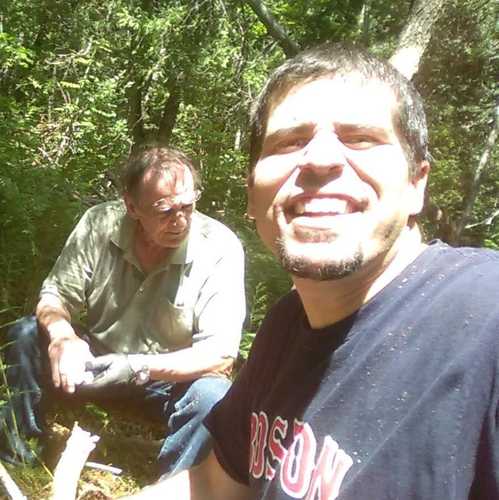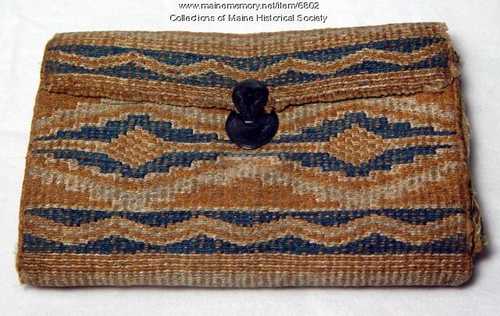Keywords: Indian names
Item 10740
Indian Point, Lake Hebron, Monson, ca. 1900
Contributed by: Monson Historical Society Date: circa 1900 Location: Monson Media: Photographic print
Item 6242
Pere Pole deposition, Hallowell, 1793
Contributed by: Maine Historical Society Date: 1793-07-19 Location: Hallowell Media: Ink on paper
Item 37301
141-145 Commercial Street, Portland, 1924
Owner in 1924: William J Dennis Use: Store
Exhibit
Father Rasles, the Indians and the English
Father Sebastien Rasle, a French Jesuit, ran a mission for Indians at Norridgewock and, many English settlers believed, encouraged Indian resistance to English settlement. He was killed in a raid on the mission in 1724 that resulted in the remaining Indians fleeing for Canada.
Exhibit
Gifts From Gluskabe: Maine Indian Artforms
According to legend, the Great Spirit created Gluskabe, who shaped the world of the Native People of Maine, and taught them how to use and respect the land and the resources around them. This exhibit celebrates the gifts of Gluskabe with Maine Indian art works from the early nineteenth to mid twentieth centuries.
Site Page
Biddeford History & Heritage Project - Biddeford's Movers & Shakers
"Though the people may be lost to time, their names live on in fable if not fact. You often hear these names in family stories or local lore, and it…"
Site Page
"All of these tribal names are found in the early literature of the area, as well as the southern New England tribes' names for the Wabanakis --…"
Story
The Journey Home
by Gina Brooks
I am a Maliseet artist from the St. Mary’s First Nation, my work is about our connection to the land
Story
The Tomah Basket
by James Boyce
Learning to make Maliseet Tomah baskets
Lesson Plan
Wabanaki Studies: Stewarding Natural Resources
Grade Level: 3-5
Content Area: Science & Engineering, Social Studies
This lesson plan will introduce elementary-grade students to the concepts and importance of Traditional Ecological Knowledge (TEK) and Indigenous Knowledge (IK), taught and understood through oral history to generations of Wabanaki people. Students will engage in discussions about how humans can be stewards of the local ecosystem, and how non-Native Maine citizens can listen to, learn from, and amplify the voices of Wabanaki neighbors to assist in the future of a sustainable environment. Students will learn about Wabanaki artists, teachers, and leaders from the past and present to help contextualize the concepts and ideas in this lesson, and learn about how Wabanaki youth are carrying tradition forward into the future.















